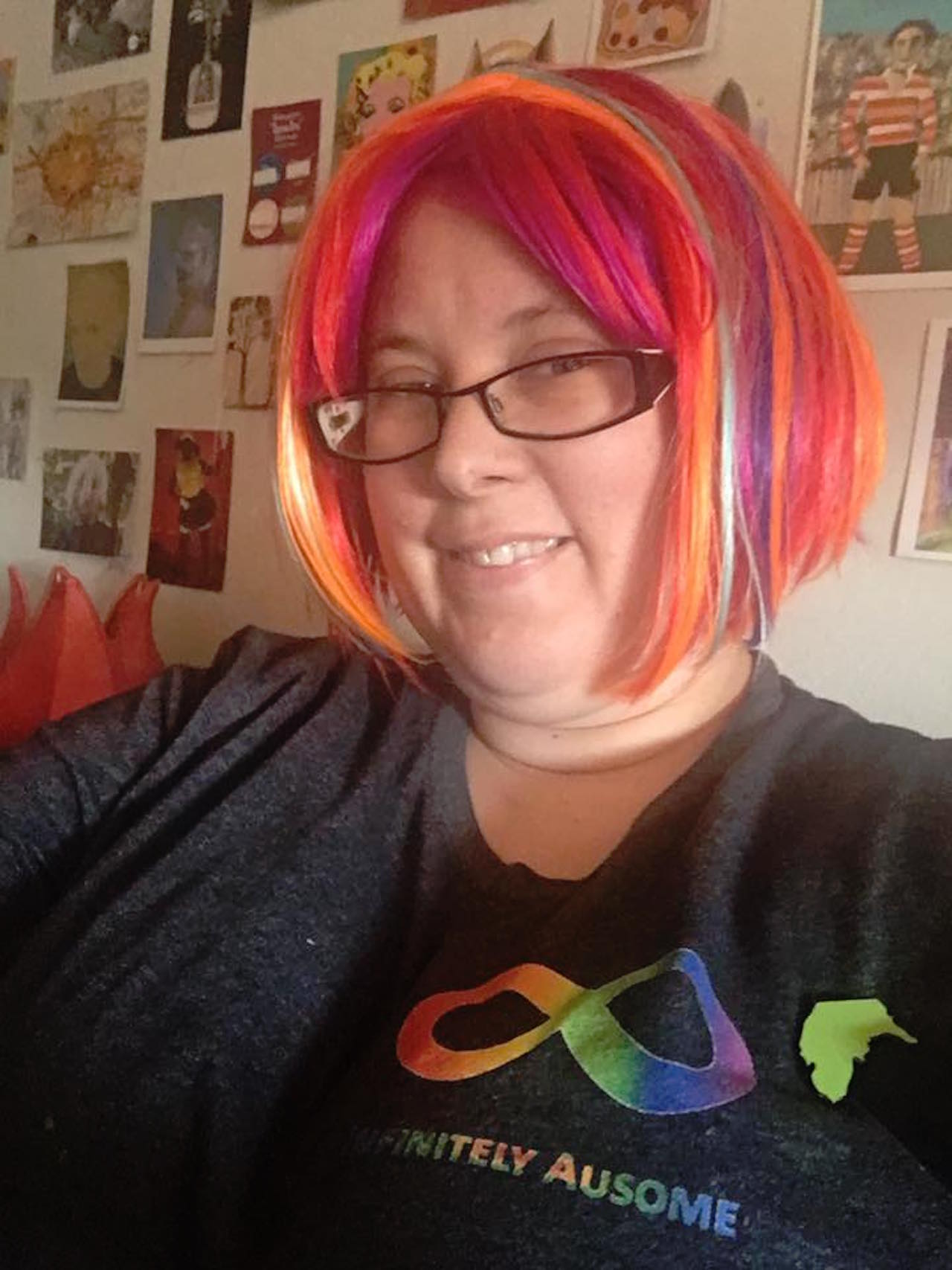An Autistic Woman Addresses 9 Common Misconceptions About Autism
 “You don’t seem very autistic to me. My nephew is autistic, and he can’t get the bus. You go to work…”
“You don’t seem very autistic to me. My nephew is autistic, and he can’t get the bus. You go to work…”
Autism is a neurological condition. While autistic people often share a number of general characteristics, we are all individuals. Two autistic people can be vastly different from one another. Autism is not a determinant of character or a person’s path through life. It is a different neurology or a different way the brain is “wired” to non-autistic people’s.
“Are you high-functioning?”
Labels of “high” or “low” functioning autism can be fraught and unhelpful. The functioning label is often seen as a life-long thing. However this can be inaccurate and misleading. An autistic person who works full-time might have a meltdown. So while they are working they might appear “high” functioning, but in the meltdown their level of functioning is different. So the functioning label fails to describe the frequent changes in ability to cope that can occur in an autistic person’s life. The functioning label can also become something of a self-fulfilling prophecy for autistic young people. A person described as “low” functioning may be given negative messaging and low expectations for their life. Their “high” functioning peers often have unrealistically high expectations put on them and their issues may be ignored because they come across as articulate. I try not to use functioning labels around autism at all.
“Are all autistic people geniuses/computer nerds/like Sheldon Cooper in ‘The Big Bang Theory’?”
Many autistic people respond well to technology. Some of us are certainly highly proficient at IT-related tasks. However autism covers the full range of cognitive and intellectual abilities, learning styles and interests. Some people on the autism spectrum are excellent at art and writing, some are good at math, and some are great at sports. We are all different.
To assume all of us are highly intelligent is often quite unhelpful. Intellect is not much of a measure of someone’s value, and for people on the autism spectrum who are not highly proficient with intellectual or technical tasks, assuming we are all computer geniuses can be exclusionary and can cause feelings of inadequacy.
“Autistic people don’t have relationships or sex.”
Many autistic people are sexual beings in the same way anyone else is a sexual being. They have relationships, marriages, casual sex and other sorts of sexual interactions. A lot of autistic people identify as being queer or gender diverse. While some autistic people identify as asexual, this is not the reality for everyone. Just because autistic people might not fit the stereotype of who should be having sex and relationships, doesn’t mean we don’t — or shouldn’t =- do it.
“Autistic people shouldn’t have children.”
As with many other disabilities, there is a lot of prejudice around autistic people raising children. On a personal level I will say my mum is diagnosed on the autism spectrum, like me, and she has always been the perfect parent for me. Moving past my own experience, there are a good many autistic parents in the world. An autistic parents may be able to understand their autistic child better on a deep level. Autistic parents have strengths and weaknesses, just like neurotypical parents. Autism certainly doesn’t preclude someone from parenting or from being a good parent.
“Nonverbal autistic people have an intellectual disability.”
While some autistic people who do not use speech/are nonverbal have a co-existing intellectual disability, this is not always the case. Many nonverbal autistic people are highly intelligent. Many use a communication device to express their thoughts. This TEDx Melbourne talk by Tim Chan, who is a nonverbal autistic man, will give you some idea of the issues around non-speech communication and autism.
“Autistic people can’t work.”
It is true that some autistic people cannot work at all. Autistic people are certainly overrepresented in unemployment and welfare statistics. It is likely that a lot of the difficulties surrounding work for autistic people involve a lack of willingness on the part of employers to take them on rather than their lack of skill or willingness to work. A lot of autistic people do work and can be highly skilled employees. We often bring some great skills to the workplace, like honesty, enthusiasm, attention to detail and a work ethic. It would be great to see more employed autistic people. This is an area for ongoing attention.
“Autistic people are rude.”
Autistic people usually interpret the world differently to non-autistic people. We generally want to be liked and we want to be respectful of others. There is often a different culture of social communication between autistic and non-autistic people.
Misinterpretations between the different communication styles can occur and the autistic person may be viewed as rude or uncaring when this is not their intent. If more people understood the differences in communication between autistic and non-autistic people they would understand our apparent “rudeness” is often just a misunderstanding.
“An autistic child is a lost child — a tragedy.”
This is the most hurtful thing you can say to me as an autistic woman. I had a difficult childhood and early adulthood. My parents never said they regretted having me. They loved me, and I became a much happier and more fulfilled person as I grew older. It is not a tragedy to bring a human being into the world. Consider the messaging an autistic child will receive in his or her formative years. I understand parents of newly-diagnosed children can struggle considerably, but they need to be supported with appropriate services and professionals, not told their child is “a tragedy.”

